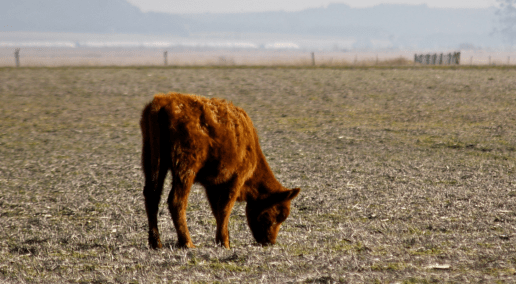During the Canadian Forage and Grassland 2022 Conference session, Canadian Economic Outlook: What Now, What Next? Aaron Goertzen from BMO Capital Markets discussed the state of the Canadian economy and prospects for inflation, interest rates and growth.
Aaron reported that Inflation had accelerated too high and banks were scrambling to keep rates contained. After the initial impact of the pandemic, there was a decline that recovered quickly by mid 2020. The growth by 2022 was more stable but it lost momentum with increasing interest rates. The overall goal is to focus on stability.
The labour market was still exceptionally tight at the time of the session, hitting a 50-year low for the unemployment rate at a whopping 5.2 per cent in 2022. Does this pose a problem for employers seeking employees? There are plenty of job vacancies. Banks want to avoid wage and price spirals and want the unemployment rate to rise six per cent, which is more consistent with price stability.
The war in Ukraine caused a negative supply shock, due to the reduced resource availability, the upward pressure on inflation and supply chain issues. Russia’s natural resources are primarily metal and energy sources for the globe, like oil and natural gas and gold, aluminium and nickel, which are key for batteries. There are resources available elsewhere, so many will shift away from reliance on Russia’s resources and the strategic needs to find friendlier supply will make western resources more attractive.
Overall inflation had decreased since mid 2022 but was still running too high. Banks were focusing on baselines and core inflation. Inflation was more of a pricing pressure than a supply issue. The impact of the pandemic hadn’t reduced the ability to produce and supply hadn’t changed but what changed was demand. Both the U.S. and Canada had seen retail increases by 10 to 20 per cent which is an exceptionally high demand.
What is going on with demand?
The pandemic caused a unique economic downturn. Typically this would lead to a loss of employment and in turn loss of economic income but programs were put in place that allowed household income to increase by 10 per cent on average. At the same time households were not able to spend income on trips or at restaurants which led to a savings surge.
At the time of this session there was a total of $200 billion excess in savings in Canada. These savings often went into real estate and financial assists and a large amount went into liquid savings accounts. Because of this we could see an inflation increase from three per cent to five per cent. Monetary policy was tightened aggressively. It takes approximately 12 to 18 months for rate hikes to help lower inflation, so at the time of this session people could expect inflation to come down after at least a year. Aaron said the Bank of Canada may stop raising rates in 2023 but they will not lower until 2024.
Housing markets in 2020 skyrocketed as home prices jumped 50 per cent in a year. The housing market was running well below the norms because high prices and high interest rates made for very poor affordability and in turn low demand. Existing home prices dropped across most of Canada and were even down to 20 per cent in some markets. Regardless, it didn’t go back to the pre-pandemic prices.
Canadian North American prices are tightly tied to the U.S. in the fight against inflation because, even if our inflation comes down, if the U.S. is still stuck with high inflation, it affects us all.
Conference 2023
The CFGA is excited to announce that its 14th annual conference will take place Nov. 28 to Dec. 1 in person in Harrison Hot Springs, BC. This year’s conference theme is Forage Resilience in a Changing Landscape: Manage risk. Overcome challenges. Discover opportunities and we look forward to delivering the interesting and informative sessions the CFGA conference is known for. Please save the date to join us as we learn about issues facing the forage sector and how they overcome these challenges, as well as take a look ahead to opportunities. Watch the CFGA conference website for more information.
Back to Grace



Leave a Comment